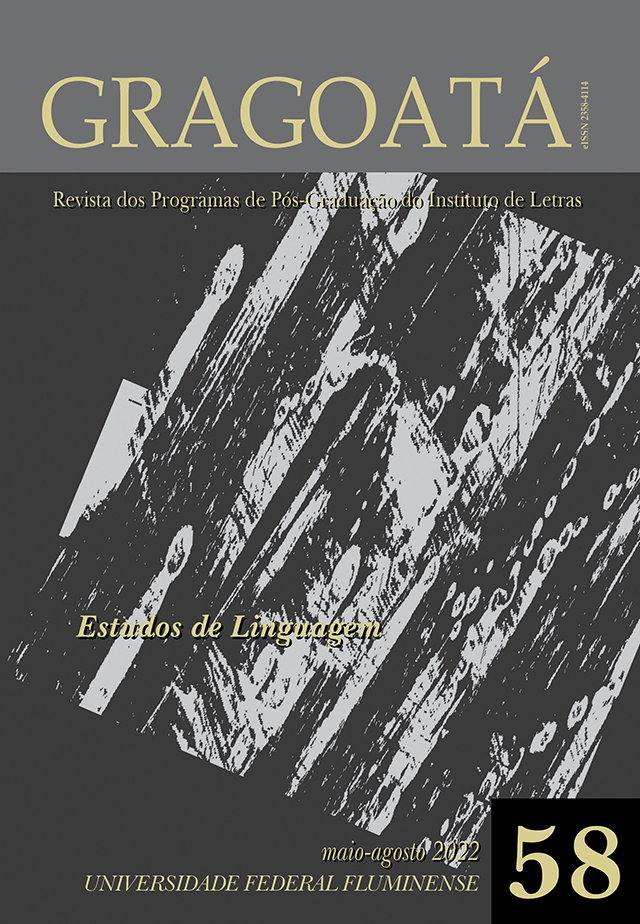Information structure of ancient greek
DOI:
https://doi.org/10.22409/gragoata.v27i58.51963Keywords:
Estrutura da informação, Pressuposição factível, Semântica modal, Aspectos verbais, Particípio gregoAbstract
The aim of this paper is to provide a description of the information structure in Ancient Greek considering the semantics of the moods and the verbal aspect in clause complex, in particular the use of the participle placed before the main clause. From the perspective of information structure, three kinds of participles are described: circumstantial participle (CP), absolute genitive participle (AGP) functioning as tracking reference, and upgraded participle (UP), based on the factive presupposition semantics of the participle (modulation). It is argued that the participle semantics contributes to the information structure processing of the these uses of the participle as common ground management in complex clauses. Besides, taken into account its modulation semantics, the participle is a syntactic device for the coding of the information structure, which contributes the pragmatics of the reference tracking (RT) and its adverbial uses. The samples are taken from Classical Greek (Aristophane’s comedies) and Biblical Greek (The book of Acts). The theoretical approach is the Systemic Functional Linguistics applied to the Greek language (PORTER, 2021, 2015, 2009, 1993; 2018, REED, 1997) with the findings of the information structure studies (MATIĆ ET. AL, 2014; KRIFKA; MUSAN, 2012; LAMBRECHT, 1994; CHAFE, 1987), using the notions of Given/New, background/prominence, and presupposition/assertion.
Downloads
Downloads
Published
How to Cite
Issue
Section
License
Authors who publish in Gragoatá agree to the following terms:
The authors retain the rights and give the journal the right to the first publication, simultaneously subject to a Creative Commons license CC-BY-NC 4.0, which allows sharing by third parties with due mention to the author and the first publication by Gragoatá.
Authors may enter into additional and separate contractual arrangements for the non-exclusive distribution of the published version of the work (for example, posting it in an institutional repository or publishing it in a book), with recognition of its initial publication in Gragoatá.

Gragoatá is licensed under a Creative Commons - Attribution-NonCommercial 4.0 International.














